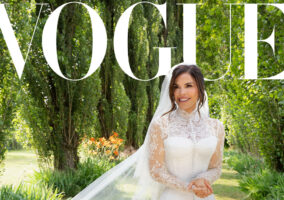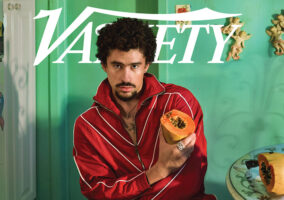In the third of four covers for W Magazine Volume 2, The Directors Issue, on stands on March 8th, Academy Award Nominated actor, Maggie Gyllenhaal directs herself in a dark thriller, which she titled “Violent Femmes.” Photographed by Willy Vanderperre, the influences for Gyllenhaal’s sharp-edged character ranges from Sean Young in Blade Runner to Isabella Rossellini in “Blue Velvet” to Catherine Deneuve in “The Hunger.” In the issue, Maggie discusses her role as a first-time director for “The Lost Daughter” and her vision for bringing Elena Ferrante’s novel to the screen.
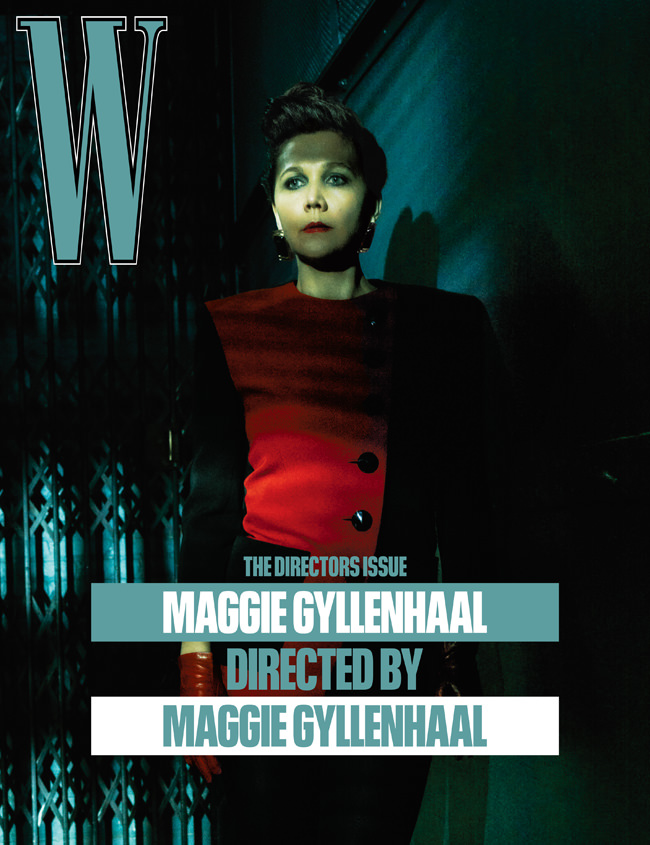
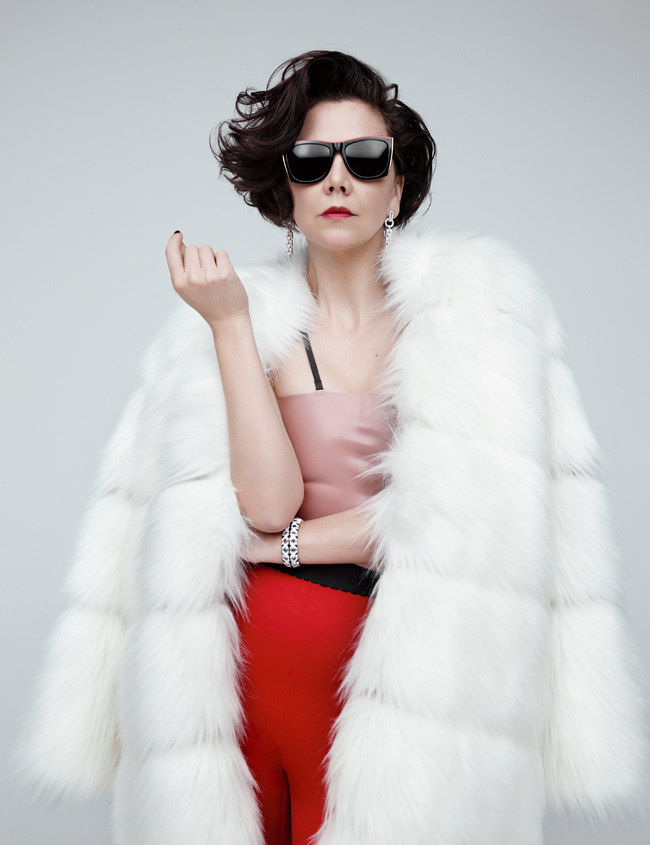
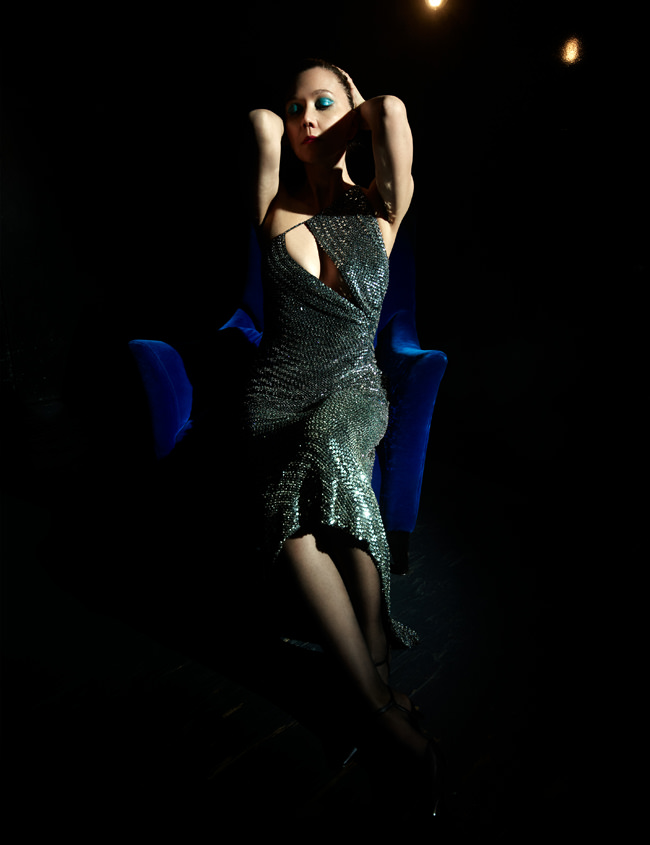
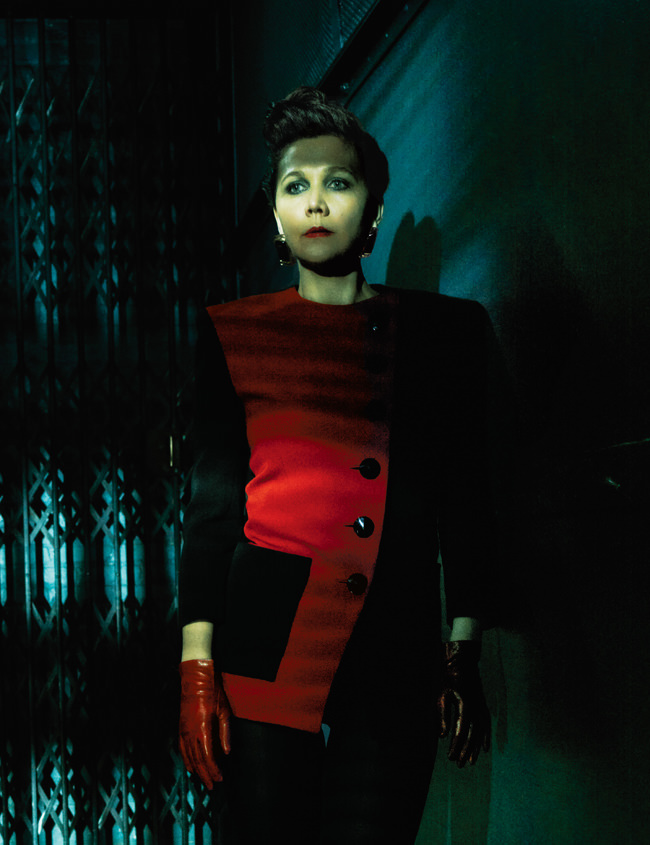
Maggie Gyllenhaal discusses the reactions received surrounding her feature directorial debut, The Lost Daughter: “I think people respond to being told the truth, especially about something taboo,”… ““I had never seen so many of these feelings, not just about mothering, but about being a woman, expressed before, and I found that really exciting—and disturbing.”
Maggie Gyllenhaal on asking author, Elena Ferrante, for the rights to her novel to adapt to film: “It’s one thing to read these things that we’ve agreed not to talk about in a book,”… “It’s disturbing and comforting at the same time, but we’re still alone in our rooms with this secret knowledge. I thought it would be a really radical proposition to put it up on a screen in a communal space, where you might be sitting next to your mother or daughter, and actually hear these things spoken out loud. Then something’s really being shattered. That’s what I had proposed to her in the letter.”
Maggie Gyllenhaal sharing challenges she encountered in bringing the book to film: “The challenge of the book was very much like breaking a scene down as an actor. You have a text and you’re like, Okay, these are the words, but what is the underlying, more interesting event of the scene, and how can you articulate that cinematically without ever saying it out loud?”
Maggie Gyllenhaal on the depictions of motherhood and film’s history of showcasing specific types such as the psychotic mothers on film or the all-sacrificing mothers: ““I think it’s because when we’re little, our survival depends on our mothers being good and loving and caring for us.”… “It’s a sophisticated, grown-up thing to ask people to reconcile being a good mother and a bad mother. I really do believe that women make work, art, film that looks different than men’s—in particular, in the way that we articulate feminine experiences. And if there aren’t very many films being made by women, that’s a whole section of our experience that doesn’t get reflected back at us. I don’t see how I could have made this movie accurately and with compassion without being a mother myself.”
Story by Chloe Malle, Photographed by Willy Vanderperre and styled by Sara Moonves.
[Photo Credit: Willy Vanderperre/Courtesy of W Magazine]
Robert Pattinson and Zoë Kravitz at THE BATMAN New York Premiere Next Post:
Sarah Lancashire Fills the Screen as Julia Child in the Trailer for HBO Max’s JULIA
Please review our Community Guidelines before posting a comment. Thank you!


